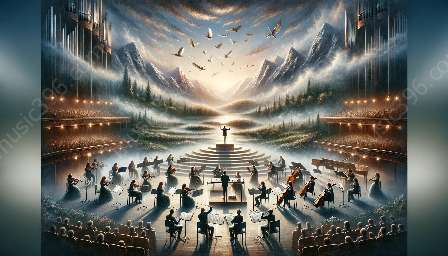Music history encompasses the evolution of musical traditions, innovation in composition, and the influential figures who have shaped this field. When discussing the father of music history, it's essential to explore the contributions and legacies of notable figures whose work has profoundly impacted the study and appreciation of music. This topic cluster will delve into the historical context, key figures, and their lasting impact on music history.
Defining the Father of Music History
As with any field of study, the concept of a single 'father' of music history is complex and multifaceted. Various individuals have played pivotal roles in shaping the narrative of music history, from ancient civilizations to the modern era. Exploring the lives and achievements of these figures provides insights into the evolution of musical traditions and the scholarly study of music.
The Early Pioneers
Music history traces back to ancient civilizations, where early forms of musical expression and notation began to emerge. Notable figures such as Pythagoras, a Greek philosopher and mathematician, made significant contributions to the understanding of music and its mathematical foundations. His work laid the groundwork for the development of music theory and the exploration of harmony and scale systems.
Another influential figure in early music history is Guido of Arezzo, an Italian music theorist of the medieval era. Guido's innovative system of musical notation, including the use of staff notation and solmization syllables, revolutionized the way music was taught and preserved for future generations.
The Renaissance and Baroque Period
The Renaissance and Baroque periods saw the emergence of iconic composers whose works continue to define the canon of Western classical music. One such figure is Johann Sebastian Bach, often regarded as a cornerstone of Baroque music. His mastery of counterpoint and innovative approach to composition have left an indelible mark on music history, influencing generations of composers and musicians.
In the realm of music history, the pioneering work of scholars such as Johann Mattheson and Johann Gottfried Walther furthered the understanding of music theory and historical musicology. Their writings and research laid the groundwork for the scholarly study of music history, providing valuable insights into the evolution of musical styles and forms.
The Enlightenment and Romantic Era
The Enlightenment period ushered in an era of intellectual and cultural transformation, leading to new perspectives on music and its role in society. Figures such as Jean-Jacques Rousseau, a philosopher and composer, contributed to the discourse on the theory of music and its expressive qualities. His treatises on music education and the philosophy of music played a role in shaping the evolving landscape of music history.
As the Romantic era unfolded, composers like Ludwig van Beethoven and Franz Schubert redefined the boundaries of musical expression, leaving an enduring impact on the course of music history. Their innovative approaches to form, harmony, and thematic development set the stage for the evolution of classical music and influenced subsequent generations of composers.
The Birth of Musicology
The 19th and 20th centuries witnessed the establishment of musicology as a scholarly discipline, encompassing the systematic study of music history, analysis, and criticism. Figures such as Guido Adler, a pioneering musicologist, played a crucial role in codifying the principles of musicological research and establishing the foundations of modern music history as an academic field.
Moreover, the contributions of ethnomusicologists such as Curt Sachs and Jaap Kunst expanded the scope of music history by documenting and analyzing diverse musical traditions from around the world. Their efforts promoted a more inclusive and comprehensive understanding of music's global heritage, enriching the tapestry of music history.
Contemporary Perspectives
In the modern era, music history continues to evolve, embracing interdisciplinary approaches and new methodologies in the study of musical cultures and traditions. Scholars, educators, and musicians worldwide contribute to the ongoing narrative of music history, exploring diverse genres, technological advancements, and the impact of globalization on musical practices.
As the digital age transforms the dissemination and consumption of music, contemporary figures engaged in music scholarship, archival preservation, and cultural advocacy shape the ongoing legacy of music history. Their dedication to preserving musical heritage and fostering a deeper understanding of musical traditions ensures that the narrative of music history remains dynamic and relevant in the 21st century.
In Conclusion
The notion of a singular 'father' of music history underscores the collective contributions of diverse individuals who have shaped the vibrant tapestry of musical traditions and scholarship. By acknowledging the varied voices and perspectives that have enriched the narrative of music history, we gain a deeper appreciation of the multifaceted journey that has led to the diverse musical landscape we celebrate today.









































